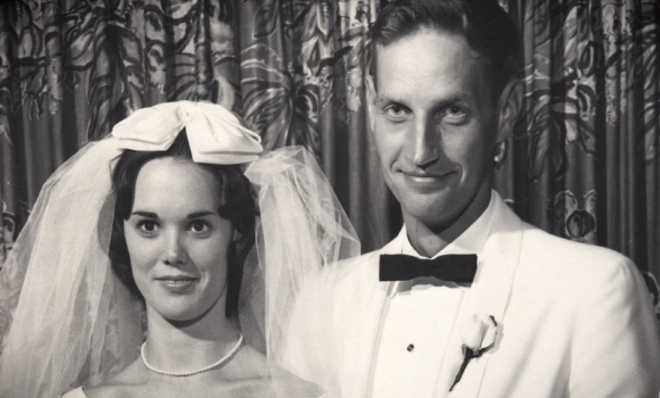Watch Ed Snowden's 1971 precursors discuss burglarizing the FBI
These previously anonymous 1971 whistleblowers really put their freedom on the line. And the FBI never caught them.


A free daily email with the biggest news stories of the day – and the best features from TheWeek.com
You are now subscribed
Your newsletter sign-up was successful
A good 42 years before Edward Snowden pilfered secret National Security Agency documents detailing broad government surveillance, a band of eight antiwar protesters broke into an FBI field office in Media, Pa., and stole boxes of documents. The internal FBI memos and records, once sent to journalists, exposed widespread counterintelligence efforts by J. Edgar Hoover's FBI designed to crush America's antiwar and civil rights movements.
The thieves were never caught, despite the efforts of some 200 FBI agents, and they didn't reveal themselves. Betty Medsger, a former Washington Post reporter who wrote the first article based on the leaked FBI documents, finally discovered the identities of the burglars, and she persuaded five of them to come forward in her new book, The Burglary: The Discovery of J. Edgar Hoover’s Secret FBI, out this week.
The man who hatched the plan, Haverford College physics professor William C. Davidon, died last year. Retro Report got three of the surviving burglars — former taxi driver Keith Forsyth and academics John and Bonnie Raines, a couple then raising a young family — to talk on video about their raid on the FBI office.
The Week
Escape your echo chamber. Get the facts behind the news, plus analysis from multiple perspectives.

Sign up for The Week's Free Newsletters
From our morning news briefing to a weekly Good News Newsletter, get the best of The Week delivered directly to your inbox.
From our morning news briefing to a weekly Good News Newsletter, get the best of The Week delivered directly to your inbox.
Their story, told in the video above, is a good tale in its own right, filled with the clever plotting — they broke in on March 8, 1971, during the world heavyweight boxing match between Joe Frazier and Muhammed Ali — and the mundane travails of amateur burglars. But the documents they sent to the press, under the name the Citizens' Commission to Investigate the FBI, changed history.
The records revealed FBI efforts to spy on and infiltrate the antiwar movement and destroy it by sowing paranoia among its members. One document with the mysterious word "Cointelpro" led to the discovery of a dissent-quashing FBI program — dubbed the Counterintelligence Program — that stretched back to 1956 and included an effort to blackmail Martin Luther King Jr. into killing himself. "It wasn't just spying on Americans," Loch K. Johnson, a former aide to Sen. Frank Church (D-Idaho), tells The New York Times. "The intent of Cointelpro was to destroy lives and ruin reputations."
These revelations led to the Church Commission into domestic spying abuses, broad reforms at the FBI and CIA, and the creation of the Foreign Intelligence Surveillance Act (FISA) court now at the center of Snowden's revelations. What makes the 1971 FBI break-in all the more remarkable is that, as Retro Report puts it, it is "the greatest heist you've never heard of." And for 43 years, its protagonists were happy to let their work quietly speak for itself.
A free daily email with the biggest news stories of the day – and the best features from TheWeek.com
Peter has worked as a news and culture writer and editor at The Week since the site's launch in 2008. He covers politics, world affairs, religion and cultural currents. His journalism career began as a copy editor at a financial newswire and has included editorial positions at The New York Times Magazine, Facts on File, and Oregon State University.
-
 Why is the Trump administration talking about ‘Western civilization’?
Why is the Trump administration talking about ‘Western civilization’?Talking Points Rubio says Europe, US bonded by religion and ancestry
-
 Quentin Deranque: a student’s death energizes the French far right
Quentin Deranque: a student’s death energizes the French far rightIN THE SPOTLIGHT Reactions to the violent killing of an ultraconservative activist offer a glimpse at the culture wars roiling France ahead of next year’s elections
-
 Secured vs. unsecured loans: how do they differ and which is better?
Secured vs. unsecured loans: how do they differ and which is better?the explainer They are distinguished by the level of risk and the inclusion of collateral
